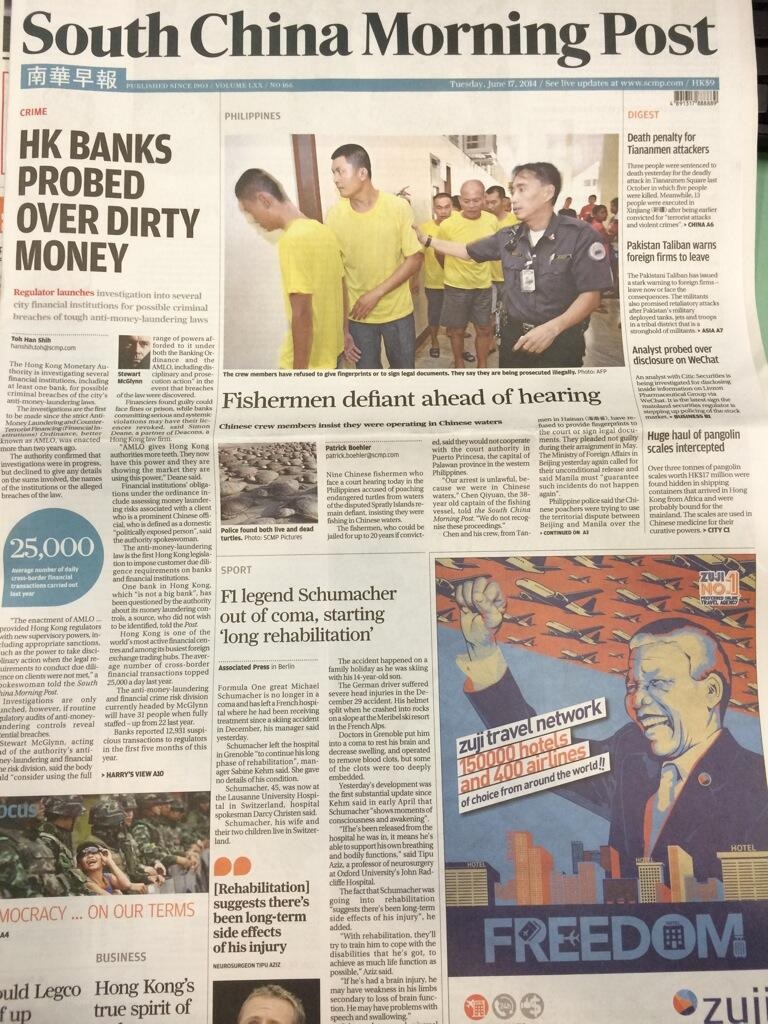
Earlier this month, Yahoo! News reported that the South African consulate in Hong Kong wrote to a local travel company “Zuji” and demanded that it “immediately pulls a front-page advertisement featuring an image of a fist-pumping Nelson Mandela above the word “freedom””. The advert in question is pictured above.
According to the South Africans, the use of the stylized image — which also echoes the Barack Obama “Hope” poster — was an infringement of copyright held by the Nelson Mandela Foundation. A close-up of the advert is pictured below:

Byronie Guthrie from the South African Consulate is reported to have found the advert “quite strange”:
“We have seen the advertisement and have been in touch with the company involved, because Nelson Mandela’s image is never to be used for commercial use…In South Africa, even his own charities are discouraged from ever using his image for commercial use…”
In response to the Consulate’s letter, Zuji is reported to have stated that it would withdraw the ad immediately. Zuji further added that:-
“Zuji has nothing but the utmost respect for the late South African leader, Nelson Mandela, and would like to apologise for associating our advertising campaign with Mr. Mandela,”
Comment:
Two key intellectual property issues arise from Zuji’s advert, namely whether Zuji’s advert amounts to trademark and/or copyright infringement?
From a copyright law perspective, the main issue for determination is the chain of title with regards to advert. If the advert was adapted from a picture taken of Mandela then the photographer would have a right of action against Zuji. Therefore the onus would be on the Mandela Foundation to prove that it has valid assignment agreements with respect to all photographs taken of the late Mandela. These assignments would have to be coupled with an objective demonstration that the stylized advert and a photography owned by the Foundation are substantially similar. This point is illustrated by the recent case of Shepard Fairey, which involved the famous “HOPE” campaign poster that had been adapted from a photograph taken by AFP.
What if Zuji developed the advert from scratch without infringing on any existing copyright work i.e. a photograph? In such a case, this blogger argues that the Foundation would be able to rely on trade mark law protection.
On the issue of trade marks, the Foundation may be able to rely on the common law remedy of passing-off. This action protects the reputation acquired through use of an unregistered mark. Therefore the common law protects through passing-off is the goodwill between a trader and its customers which the mark helps to sustain. Thus in the normal case of passing-off, the Foundation has to prove a reputation sufficient for members of the public to be misled by Zuji’s advert into thinking that the latter’s goods and services are associated with those of the Foundation. Consequently, the rights which an unregistered trademark owner such as the Foundation has against an imitator such as Zuji would exist only so long as the Foundation does not abandon its business.